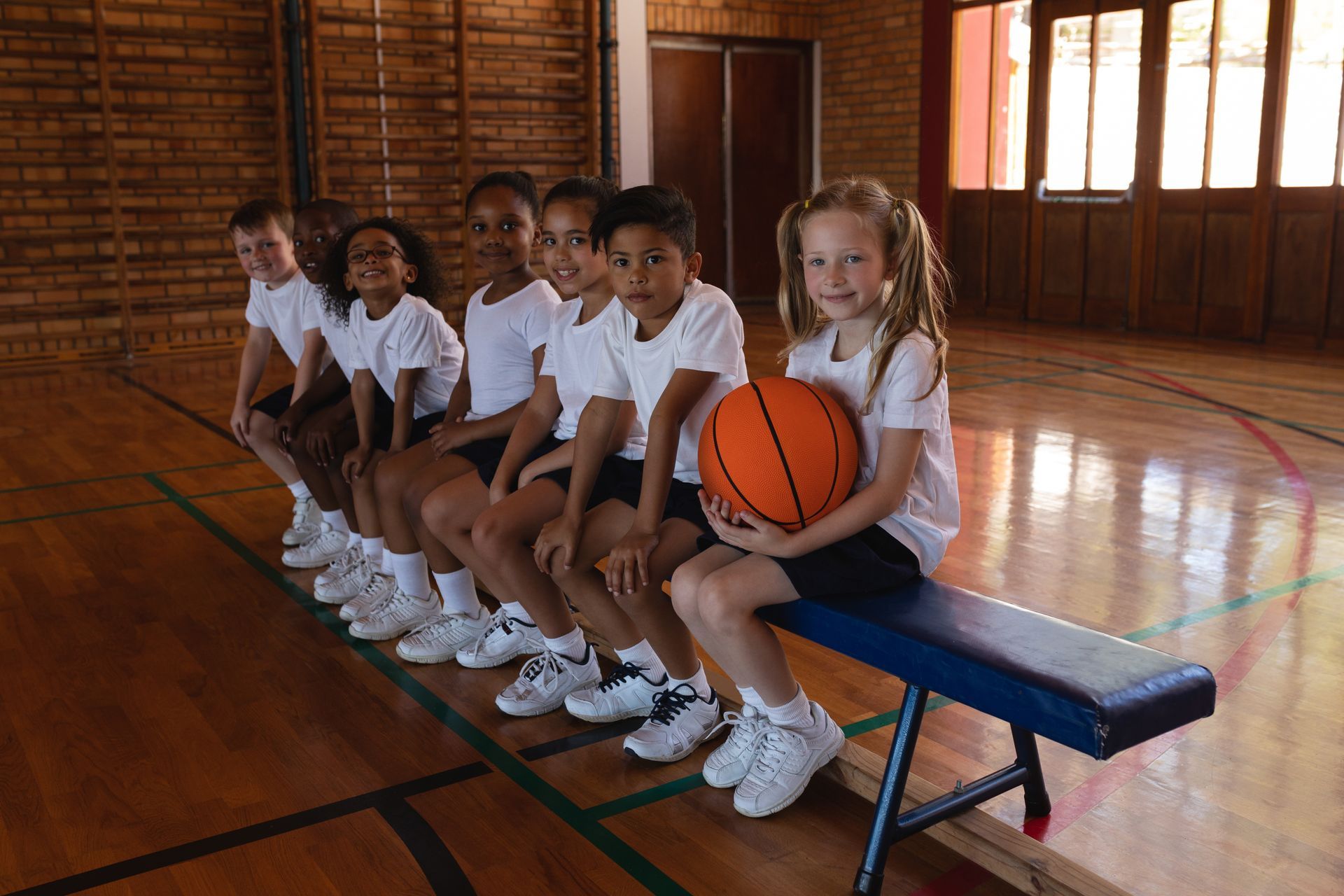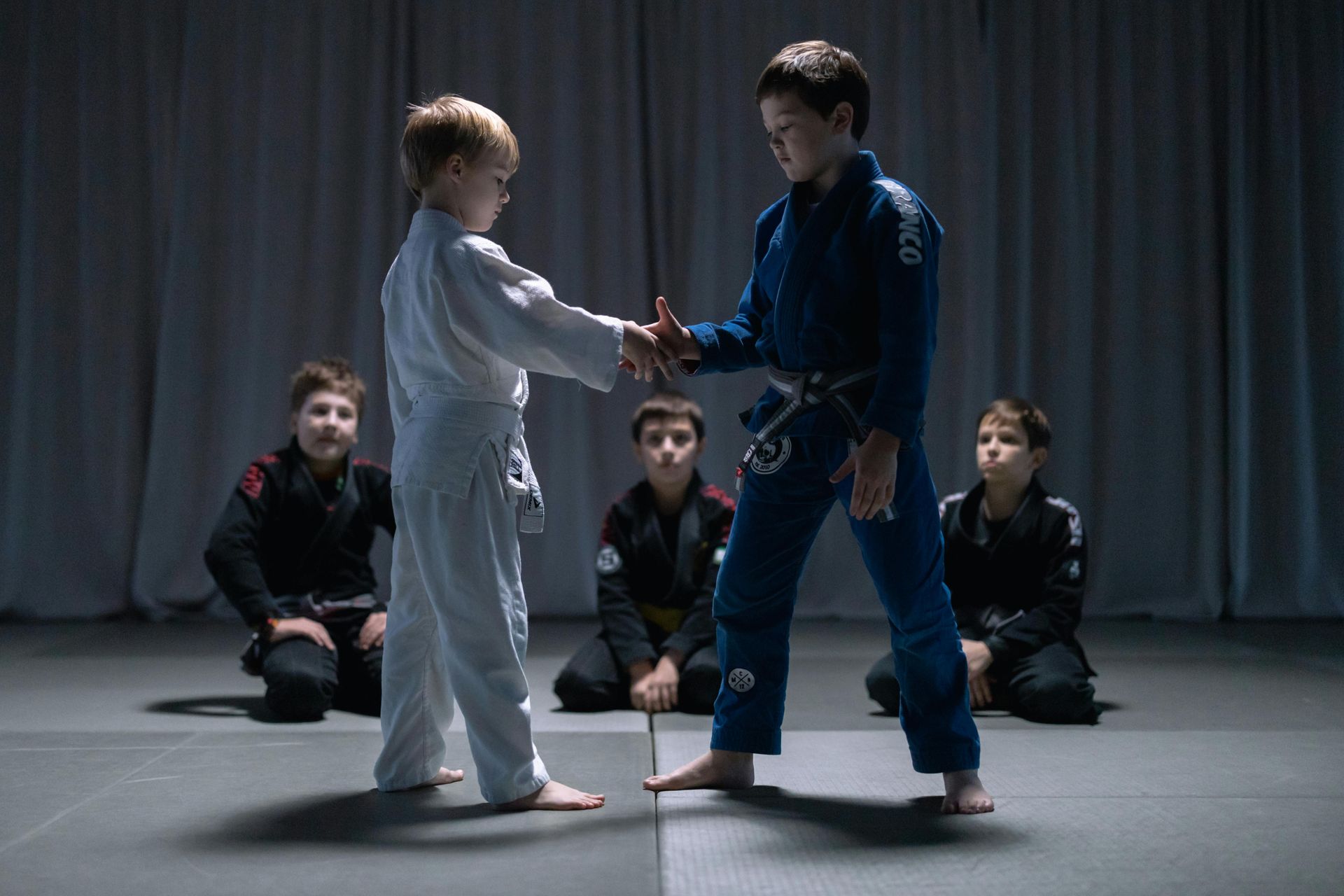The Benefits of Strength Training for Kids: Building a Strong Foundation
At Scholars Academy in Brentwood, CA, we believe in empowering the next generation to lead healthy and active lives. One of the best ways to promote lifelong health is through strength training. Contrary to common misconceptions, strength training for kids isn't about lifting heavy weights or building massive muscles; it’s about developing a strong foundation of physical and mental well-being. In this blog post, we will explore the many benefits of strength training for children, including physical health, mental growth, and improved performance in everyday activities.
Physical Health Benefits of Strength Training for Kids
Strength training, when done correctly, is a safe and effective way to help children build stronger muscles, improve their coordination, and enhance overall physical fitness. Here are some of the key physical benefits of strength training for kids:
a. Improved Muscle Strength and Endurance
One of the most obvious benefits of strength training is that it helps children develop stronger muscles. By engaging in a variety of exercises that target different muscle groups, kids can improve their muscular strength and endurance, which is essential for everyday activities like carrying a backpack or playing sports.
b. Enhanced Bone Density
Strength training plays a critical role in increasing bone density in children, which is crucial for their long-term health. During childhood and adolescence, bones are growing rapidly, and engaging in weight-bearing exercises can help strengthen bones and reduce the risk of fractures and other injuries later in life.
c. Better Posture and Alignment
Kids often spend long hours sitting in front of computers or slouching over their phones. Strength training can help improve posture and body alignment by strengthening the muscles that support the spine, neck, and shoulders. This not only prevents discomfort but also helps children maintain proper body mechanics as they grow.
d. Reduced Risk of Injury
Building muscle strength and enhancing coordination through strength training reduces the risk of injury during physical activities. Stronger muscles provide better support for joints, and improved balance and coordination can help prevent falls and other accidents, particularly in children who are active in sports.
Mental Health Benefits of Strength Training for Kids
While the physical benefits of strength training are well-known, its positive impact on mental health is equally significant. Strength training provides a unique opportunity for kids to build confidence, improve focus, and develop a positive self-image.
a. Increased Confidence and Self-Esteem
As children see their strength improve over time, they gain a sense of accomplishment that boosts their confidence and self-esteem. The ability to set and achieve fitness goals instills a growth mindset, teaching kids that with persistence and hard work, they can overcome challenges both in and out of the gym.
b. Stress Relief and Mental Clarity
Strength training can serve as a powerful outlet for releasing stress and anxiety. Like all forms of exercise, strength training triggers the release of endorphins, the body’s natural "feel-good" hormones. This can uplift your spirits and help you feel more at ease. Kids who engage in regular strength training often report feeling more focused and less overwhelmed by school or social pressures.
c. Improved Focus and Discipline
The structure and discipline required in a strength training program can help children develop better focus and self-control. By following a routine and working toward specific goals, kids learn the value of perseverance and discipline—skills that can translate into other areas of life, such as academics and personal relationships.
Athletic Performance and Strength Training
For children who participate in sports, strength training can be an invaluable tool for improving performance and reducing the risk of injury. Whether they’re involved in team sports like soccer and basketball or individual activities like swimming and gymnastics, strength training can enhance their overall athletic abilities.
a. Improved Speed and Agility
Strength training helps children develop stronger legs, core muscles, and coordination, all of which contribute to better speed and agility on the field or court. Exercises that focus on plyometrics, for example, can enhance quickness and reaction time, making kids more competitive in their chosen sport.
b. Enhanced Power and Endurance
In sports that require bursts of power—like football or track—strength training can help kids develop explosive energy. It also improves muscular endurance, allowing athletes to perform at a high level for longer periods without fatigue. This is particularly important for sports with extended playtimes, such as soccer or basketball.
c. Injury Prevention for Young Athletes
As previously mentioned, strength training strengthens muscles and joints, reducing the risk of common sports injuries such as sprains, strains, and overuse injuries. By incorporating strength exercises into their routine, young athletes can improve their overall durability and stay on the field longer.
Age-Appropriate Strength Training for Kids
At Scholars Academy, we understand the importance of designing strength training programs that are safe and age-appropriate for children. Kids are not miniature adults, and their bodies have unique needs and limitations that must be considered.
a. Supervision and Guidance
One of the most important factors in ensuring a safe and effective strength training program for kids is proper supervision. At Scholars Academy, our trainers are experts in working with children and are trained to provide the guidance needed to perform exercises safely and correctly. This helps prevent injury and ensures that kids are developing good habits from the start.
b. Focus on Bodyweight Exercises
For younger children, we focus on bodyweight exercises like push-ups, squats, and lunges. These exercises are not only safer than lifting heavy weights but also help build a strong foundation of functional strength that can carry over into other activities.
c. Gradual Progression
As children grow and develop, their strength training programs should progress at a gradual and controlled pace. Adding resistance, whether through light weights or resistance bands, should only be done when the child has mastered proper form and is ready to advance.
Building Lifelong Healthy Habits
One of the greatest benefits of strength training for kids is the opportunity to instill lifelong healthy habits. Physical fitness is not just a temporary activity but a way of life that can lead to better health outcomes well into adulthood.
a. Encouraging a Positive Attitude Toward Fitness
Introducing kids to strength training at an early age fosters a positive attitude toward fitness. When exercise is seen as a fun and rewarding activity rather than a chore, children are more likely to continue engaging in physical activity as they grow older.
b. Promoting Consistency and Discipline
By teaching kids the value of consistency in their strength training routines, we help them develop habits that will serve them throughout their lives. Regular exercise, combined with a balanced diet and healthy lifestyle choices, sets the stage for a lifetime of well-being.
c. Family Involvement and Support
At Scholars Academy, we encourage families to be involved in their child's fitness journey. Whether it's by participating in family fitness activities or supporting their child's progress, parental involvement plays a crucial role in reinforcing healthy behaviors.
Contact Scholars Academy for Strength Training Programs in Brentwood, CA
At Scholars Academy, we offer a variety of strength training programs designed specifically for kids. Our experienced trainers are committed to helping children build a strong foundation for physical fitness and personal growth. Whether your child is looking to improve their athletic performance, boost their confidence, or simply stay active, we have a program that fits their needs. We offer an extended day program, family kickboxing, kids' karate, and life skills classes.
Give us a call at
(925) 390-0100 to learn more about our strength training services and how we can help your child develop the skills and confidence to thrive both on and off the field. We are excited to partner with you and your family.
Frequently Asked Question
Is strength training safe for kids?
Yes, when done correctly and with proper supervision, strength training is safe for kids. At Scholars Academy, our trainers ensure that all exercises are age-appropriate and performed with correct form to prevent injury.
At what age can children start strength training?
Children can start strength training as early as 7-8 years old, focusing on bodyweight exercises and proper technique. As they grow and develop, they can gradually progress to more advanced exercises.
Does strength training stunt a child's growth?
No, strength training does not stunt growth. In fact, it can help improve bone density and overall health. The key is to focus on proper form, appropriate resistance, and gradual progression.
How often should kids engage in strength training?
For most children, two to three strength training sessions per week are sufficient. Each session should include a mix of exercises that target different muscle groups and should be part of a well-rounded fitness routine.
Can strength training improve my child’s sports performance?
Yes, strength training can enhance athletic performance by improving strength, speed, agility, and endurance. It can also help prevent injuries, making it an excellent complement to sports-specific training.

Share Article
Our Recent Articles






